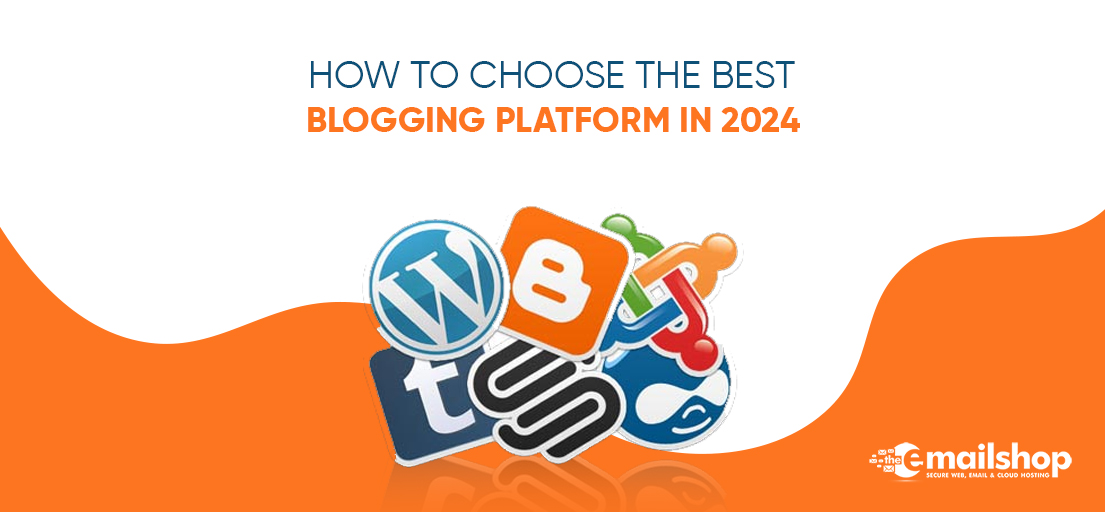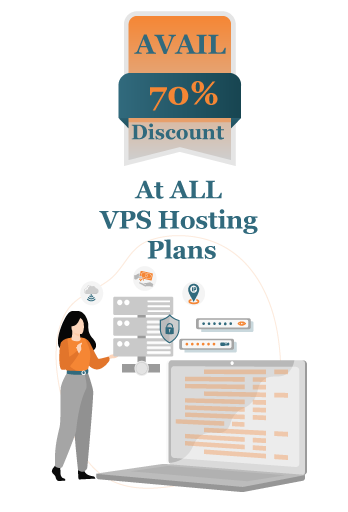Selecting the perfect blogging platform is crucial for achieving business success and engaging with your audience in today’s digital era. With numerous options available, it can be challenging to determine which platform would best serve your needs. Therefore, we will guide you through the process of choosing the best blogging platform for the year 2024 in this article.
Why Choosing the Right Blogging Platform Matters
Choosing the proper blogging platform significantly impacts SEO, user experience, scalability, and the online success of your brand. Some platforms provide SEO tools to increase visibility, while user-friendly features increase interaction. Scalability guarantees future expansion and support for advanced features. The decision is essential for your company’s internet presence.
The Impact on SEO and Online Visibility
The right blogging platform can greatly improve your SEO, assuring greater brand presence on search platforms. SEO-friendly blog apps can increase organic traffic, enhancing your search ranks, and increasing your company’s online visibility.
User Engagement and Experience
The correct blogging platform can significantly boost user engagement and experience. User-friendly blog apps provide straightforward navigation and appealing layouts that keep users on your site longer, encouraging them to interact with your material more and eventually creating brand loyalty.
Future Growth and Scalability
Another important element to consider when selecting a blogging platform is scalability. A scalable blog app allows for long-term development and expansion, adjusting to changing corporate requirements and user demands. It’s critical to ensure long-term success and sustainability in the digital landscape.
Factors to Consider Before Choosing a Blogging Platform
Before delving into the comparison of various blogging platforms, it’s critical to grasp the major variables that will influence your decision-making process in 2024.
-
Purpose and Goals
Define the purpose of your blog and your long-term goals. Understanding your objectives will guide your platform choice, whether it’s personal expression, professional branding, or business promotion.
-
Ease of Use
Opt for a user-friendly platform, especially if you’re a beginner. A simple and intuitive interface can streamline the content creation and reduce the learning curve.
-
Customization Options
Evaluate the level of customization the platform offers. Consider whether you can personalize your blog’s design, layout, and overall look to align with your brand or personal style.
-
Hosting
Decide between self-hosted and hosted solutions. Self-hosted platforms like WordPress.org offer more control but require external hosting, while hosted platforms like WordPress.com handle hosting for you but may have limitations.
-
Cost
Assess the cost of using the platform. Some platforms are free, while others require a subscription or hosting fees. Factor in additional costs for themes, plugins, or custom domains.
-
Community and Support
Check the availability of a supportive community and reliable customer support. A vibrant community can be a valuable resource for troubleshooting and sharing insights.
-
Mobile Responsiveness
With the increasing use of mobile devices, ensure that the platform supports responsive design. A mobile-friendly blog is essential for reaching a broader audience.
-
Content Ownership
Clarify the ownership rights of your content. Some platforms may have restrictions on content ownership, so choose one that allows you to retain control over your intellectual property.
Review of Top Blogging Platforms
Choosing the right blogging platform is crucial for bloggers as it can impact everything from their website’s performance to its growth and success. This comprehensive analysis will explore some of the top blogging platforms and assess their strengths, weaknesses, and key features.
-
WordPres.org
WordPress.org stands out as a powerhouse among blogging platforms. Its open-source nature provides unparalleled flexibility and customization. With a vast library of plugins and themes, users can tailor their blogs extensively. However, it requires separate hosting and may have a steeper learning curve for beginners.
-
WordPress.com
WordPress.com, the hosted counterpart to WordPress.org, offers a more user-friendly experience. It eliminates the need for separate hosting but comes with limitations on customization, particularly regarding plugins. It’s a solid choice for beginners or those prioritizing convenience over total control.
-
Blogger
Owned by Google, Blogger is a straightforward platform suitable for beginners. It integrates seamlessly with other Google services and offers free hosting. However, it lacks the customization options of more robust platforms and may feel somewhat dated.
-
Medium
Medium is renowned for its clean and minimalist design, providing an excellent platform for writers. It’s easy to use and comes with a built-in audience. However, customization is limited, and users have less control over the distribution of their content. Monetization options are also restricted compared to other platforms.
-
Wix
Wix is a website builder that extends its functionality to blogging. A user-friendly drag-and-drop interface makes it suitable for beginners and offers visually appealing templates. However, some plans can be pricier, and their SEO capabilities might not match those of dedicated blogging platforms.
-
Squarespace
Squarespace is an all-in-one platform that provides both website and blogging capabilities. It stands out for its beautifully designed templates and includes hosting. However, third-party app integration may be less flexible, and certain plans can be relatively expensive.
Rise of Blog Apps in 2024
The rise of blog apps in 2024 is plausible, given the continuous growth of mobile usage and the demand for convenient, on-the-go content consumption. Here are several factors contributing to this potential rise
Mobile Dominance: The increasing reliance on mobile devices for information consumption suggests that blog apps could gain traction. Users appreciate the accessibility and convenience of accessing content directly through dedicated applications.
User Experience Focus: Blog apps can provide a tailored and optimized user experience compared to mobile browser access. Features such as push notifications, offline reading, and customized interfaces contribute to a more engaging experience.
Monetization Opportunities: With the right strategies, blog apps can offer additional monetization avenues for bloggers. This might include in-app purchases, premium content access, or integrated advertising opportunities.
Personalization and Interactivity: Apps allow for more sophisticated personalization features. Bloggers can leverage this to deliver content that aligns more closely with users’ preferences. Interactive elements within apps can also enhance user engagement.
Multimedia Integration: Blogs increasingly incorporate multimedia content. Apps provide a platform for the seamless integration of videos, podcasts, and interactive media, enhancing the overall richness of the content.
Community Building: Blog apps can facilitate community engagement by offering features such as comment sections, forums, or even live discussions. This sense of community fosters a more dedicated audience.
Offline Access: Blog apps can allow users to download content for offline access, addressing connectivity issues and catering to users who want to consume content without an internet connection.
Enhanced Analytics: For bloggers, having a dedicated app can provide more detailed analytics about user behavior, preferences, and interaction patterns. This data can be valuable for refining content strategies.
Social Media Integration: Integrating social media platforms within blog apps can streamline content sharing, expanding the reach of blog posts and increasing visibility.
Accessibility Features: Apps can be designed with accessibility, ensuring that a diverse audience, including individuals with disabilities, can easily access and enjoy the content.
Future Trends in Blogging Platforms
As we look ahead to 2024 and beyond, several new trends are poised to reshape the blogging platform environment. Let’s look into these predicted changes and see how they might affect the future of blogging.
Blogging Predictions for the Future
We anticipate an increase in AI-driven content creation tools within blogging platforms in 2024 and beyond, revolutionizing how blog content is created. Voice blogging is expected to gain popularity as voice recognition technology improves and voice search becomes more prominent.
The Potential Impact of Emerging Technologies
Blockchain technology has the potential to enable decentralized platforms in blogging, ensuring content ownership and transparency. Blogs will become more immersive and engaging as virtual and augmented reality technology transform how material is consumed and presented.
Cross-Platform Integration
Expect increased integration across various online platforms. Blogging tools may seamlessly connect with social media, email marketing, and other digital channels to streamline content distribution and promotion.
Gamification Elements
To enhance user engagement, blogging platforms might incorporate gamification elements. This could include badges, rewards, or challenges encouraging users to interact more with the content and the community.
Read More: How to Choose the Right VPS Hosting Provider
Conclusion
Choosing the finest 2024 blogging platform entails considering your objectives, user experience, customization, scalability, and money. Blog apps provide flexibility and convenience. Stay tuned for instructions on how to set up an autoblog in WordPress, a useful method for maintaining consistent content and improving SEO.
For Discount and Offers, Visit our Official Twitter Page









